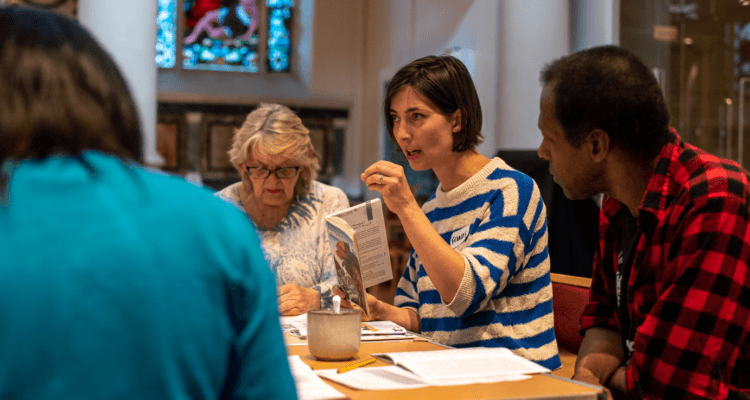Our Back Pages #2
Lasse was not in a good mood. His daughter had failed to understand something of prime importance when he had spoken to her on the telephone earlier in the afternoon. Perhaps, he thought now, though the revelation brought only further frustration, perhaps it was he who had failed in the explaining of it to her. Perhaps it was always he who failed. It was something he had been trying to get her to understand for the last ten years. The problem is, he thought, I always obliquely hint at it, I never just come out with it. But then he didn’t think that was quite it either. Regardless, she was not coming to the island for the weekend; so the children would not be coming either. The sweet biscuits he had bought especially for them would go uneaten. The sickly cola would go flat in the bottle. They never came these days, except at midsommar. He had thrown many packets of biscuits to the fish on the short journey across the water from Nävekvarn, crumbling each one methodically between the fingers of one hand whilst the other steadied the rudder and held firm the throttle. He was doing the same now.
The chill had arrived already. It was early, but he could feel the distinct approach of winter. He cursed it. It was becoming more and more difficult for him to make the journey alone, more difficult to enjoy it also. He had ever been one for solitary occupation, and had spent many satisfying weekends on the island over the years when, having left his wife and – then – young children at home in Norrköping, he could fish silently and work without distraction on the house, renovate the dilapidated bastu, re-plank the jetty. Now his joints were swollen with arthritis, his lungs wheezed at every deep breath; those days were gone. He was old, and the joy of manual labour had moved beyond him. It made him feel helpless at times. The tide of his life, having reached the high-water mark, had ebbed away again. Only flotsam remained where the water had been; jagged and glistening tokens upon the damp sands of what had seemed a productive middle-age. Those children were the only consolation left for him now. The only ones left for him to instruct, to make himself seem useful. And they adored him. And their mother, his own daughter, could not see her way clear to allowing him a little time with them now and then.
The biscuits crumbled on, a little wake of sugary globules stretched out behind the dinghy, mingled in the light froth of the weak and sputtering outboard. It was as he was doing this, fulfilling his self-piteous ceremony and rankling himself with bitter memories of a well-spent industrious youth, that he saw the man. He was standing on the rocky outcrop at the edge of Ärtholmen, one of the smaller uninhabited islands of the archipelago. A poor time of year for camping, was the first thought that occurred to Lasse, and he took time from crumbling biscuit to reinforce the point by massaging his swollen knuckles against the underside of a thigh. If he is alone of course, he thought further, then maybe so, maybe it is perfect weather for it, but if he has company it is a poor time of year. Lasse gave a slight wave of his hand to the desolate- looking figure. It was not necessarily intended as a gesture of friendship; perhaps sympathy, or merely tired acknowledgement. Whatever it was, it was not returned. The man continued merely to stand there in the slight breeze, his feet rooted upon the rocks. Lasse’s gaze returned to the water ahead of him, and beyond it to his own house standing upon the near shore of Krokholmen. He was already thinking his way through the obstacle course that arthritis had made of disembarkation, of tying up, of lugging supplies up the rocky paths to the house, but his eyes returned again to the man on the rocks. He remained there, standing as though propped up, as though someone had rammed a pole up the back of his shirt. He is impossibly upright, Lasse thought, and standing in a way that is frankly unnatural for any man; perhaps there is something wrong over there. But if that were so why wouldn’t he return his wave at least, or better yet shout and scream and wail as any right-thinking man would do if he needed assistance? Nevertheless it was none of the old man’s business. It was not Krokholmen, he had no house on that island, no property to concern himself about there – although memories, he had some of those; his girls used to camp-out on Ärtholmen as on every other island around there. He used to drop them and their girlfriends off with a few tins of meat or some hotdogs and fish, and then pick them up the following day. He could even remember hearing their voices carrying across the bay in the still nights, their laughter and high-spirited conversation reassuring him of their safety before he went to sleep; moreover reassuring him of their happy innocence and thus comforting him with the pleasing night-time thought that he was in fact a fine father after all.
The man on the rocks did not seem to be moved by these reminiscences; he remained frozen as before. He did not even appear to sway in the breeze, nor his clothes to ruffle. It was as though he were carved from a human stone. Lasse became steadily indignant. Of course the man can stand where he likes, he thought, he can stand there naked until doomsday if he wants to, but he must, he must do so as a man, not as a statue, or a wooden beam; even the trees move. A child would have waved back, he thought, indignance giving way to bitterness, mine certainly would have. The hell with him. Lasse went back to staring ahead to his own house. He had built most of it himself, all of the additional cabins that were dotted around it had come from his own hands. Many good friends had come to stay there throughout the years and most of his most-cherished memories were connected with the place. He was almost there now. He would have to cut the engine in another minute. If he cared to see the man now he would need to look over his shoulder and behind him. He had no such wish though. The falling dusk will make him disappear soon enough, Lasse imagined, and then he may or may not move as much as he likes without bothering me.
The packet of biscuits was empty now. He took the plastic wrapper and stuffed it into his jacket pocket. As he was doing so his fingers found the wrapping of a previous packet that had met the same fate. The tips of his fingers became outraged at its presence, and this feeling found a way to spread throughout him. He stuffed the new wrapper in a different pocket instead, ramming it down, and turned his head round in spite of himself to the man upon the rocks. He had voice all of a sudden, it was strong and furious. ‘YOU WILL GET OLD, MY FRIEND! YOU WILL GET OLD AND FALL FROM YOUR FUCKING PERCH AS ALL HAVE DONE BEFORE YOU!’ he shouted, the words roaring out past his lips and whipped away by the breeze before he realized what he was doing.
The old man turned away once more. He felt foolish, but relaxed. He hadn’t screamed in that way since he was a child, and never with such fearless ferocity. His pulse was up, but his breath came easy. He cut the engine and the dinghy slid silently to where it ran untroubled onto the rocky little beach. He took the shopping bags from it and also some light lumber he had brought for the purpose of patching up the sun-porch, and placed it all on the shore. He was about to push off again and row over to the jetty to tie up when he thought the better of it. He might go on over to Ärtholmen later in the evening and see if the fellow was still there, perhaps he would stand in the boat and heckle him from just offshore. Lasse laughed to himself at the thought. He wished the children were here. He wished his daughter had heard him shouting at the man, he thought she would have laughed and perhaps been proud also, although he did not know why she should be. When he closed his eyes he could almost see her smiling right now.
He tied the boat down well enough, left the lumber and took the shopping and walked up to the house. The light was falling into a beautiful hue of deepening dark blue but the sky was clear enough to make out everything. When he reached the house Lasse took down the binoculars from the nail behind the door and stood at the kitchen window. He found the island and swept around to find the rocks. He found them, but could not find the man. He was no longer there.
Share
Related Articles

Reader Revisited: Reading with Looked-After Children by Grace Frame
We're taking a trip down memory lane and revisiting articles from The Reader Magazine. This article first appeared in issue…

Meet The Reader: Staff Spotlight with Frances
Saturday 30 September is International Podcast Day so this month we got chatting to Frances MacMillan, the Head of Literary…

National Poetry Day 2022
To celebrate National Poetry Day 2022, The Reader has created a new poetry anthology exploring this year's theme, The Environment.…


